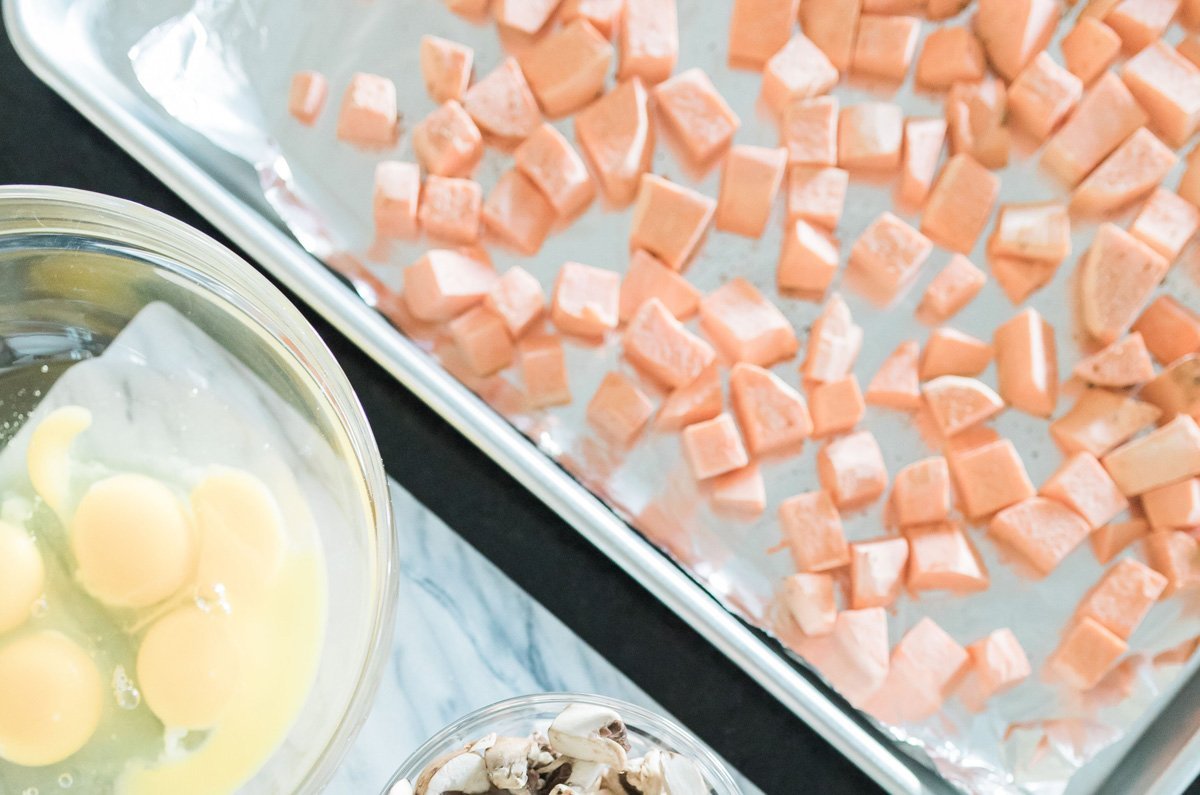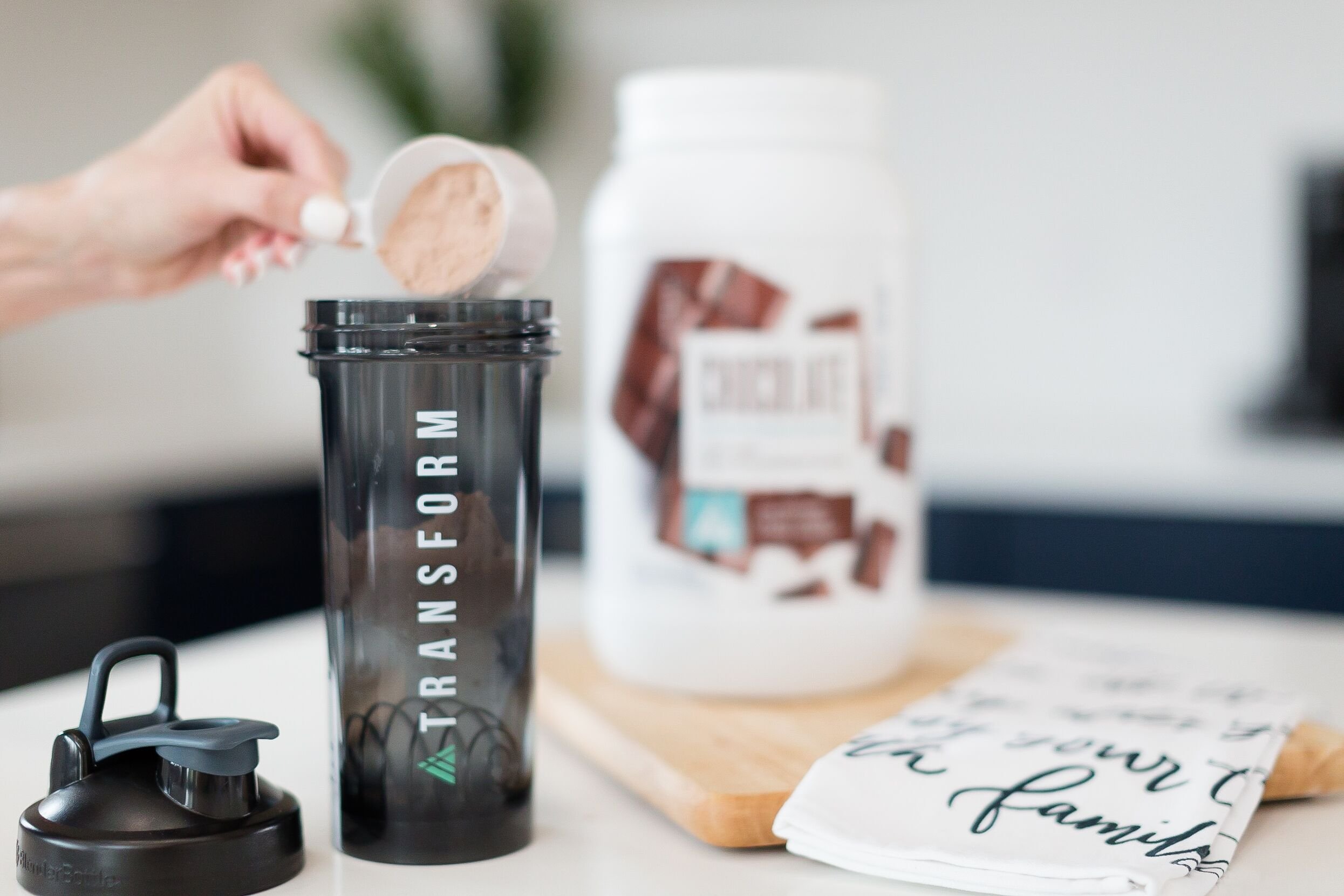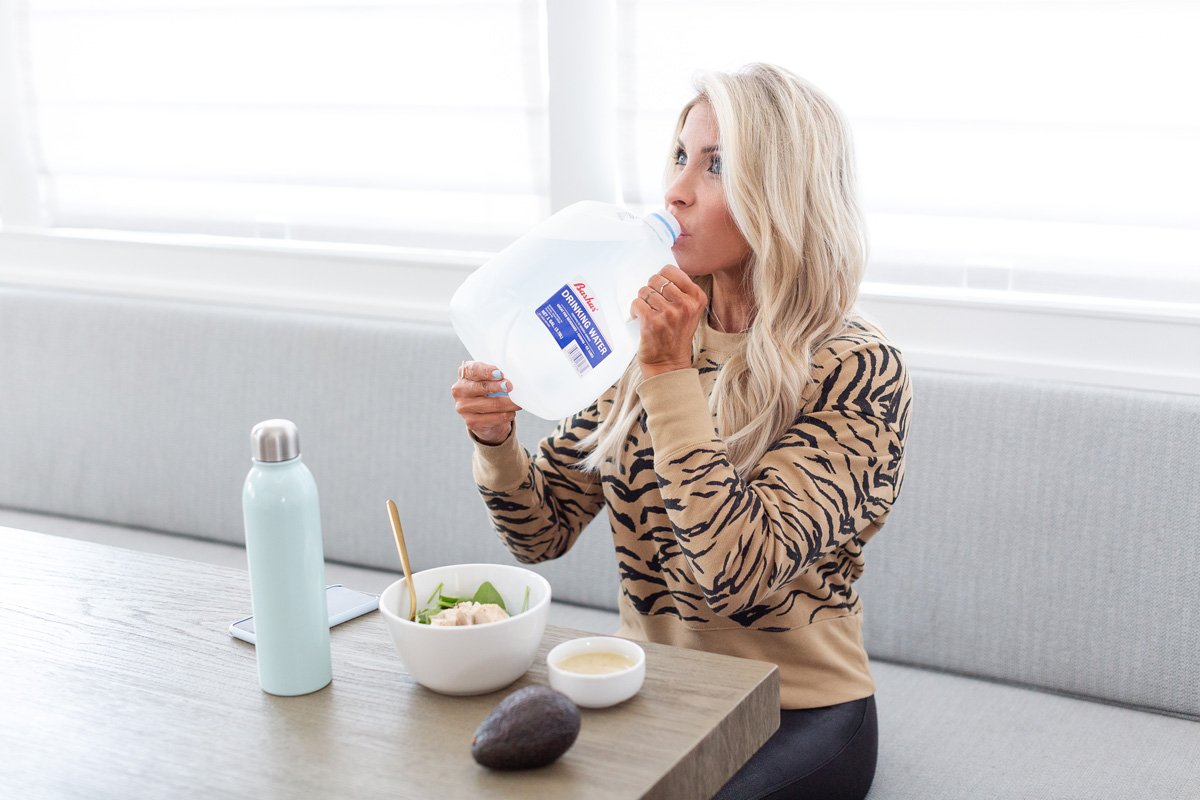What? Gain weight? Who wants to do that?! A lot of people, actually. The reality is they just don’t realize it because the biggest misconception when it comes to changing our body composition is that smaller = better. And that the tinier the number on the scale, the closer to our dream body we’ll get.
WRONG! Believe me. It took years for me to truly understand this and put this belief into practice because gaining weight, especially if you come from a background of disordered eating, can be a really scary concept. And the low calorie, low fat, low carb fads are EVERYWHERE. So why would it make sense to eat MORE if you’re trying to weigh LESS?


Let’s break it down. It’s not necessarily that you want to gain weight, because we’re not just talking about any old weight gain. We’re talking about gaining muscle.
When you gain healthy muscle weight, your body will naturally burn more fat, and then it results in that lean, sculpted, look that most people are after.
How do you gain healthy, muscular weight while avoiding gaining body fat?
This really is no different than when you’re trying to lose weight or lose body fat. You’ll see the best results when you have a plan in place so that everything you do is intentional. Being intentional and consistent with anything is what will result in achieving your goal, right? And you want that plan to not only help you build muscle, but to also fuel your body with the nutrition it needs, including macronutrients and micronutrients, so you’ll feel awesome in that new, muscular body. And by “muscular body,” I’m not talking about a physique competition-ready body…that’s a whole other blog post, believe me! What I’m talking about is a healthy body with a healthy body fat percentage and lean, toned muscles.
Here’s one important thing to remember before we move on: Adding muscle WILL make that number on the scale go up. But remember, it’s not all about that number on the scale! It’s about your body composition: aka how you look, how you feel, and how your clothes fit. All of the non-scale victories that are going to indicate more progress than relying on JUST the scale alone!
Gaining healthy muscle as opposed to body fat is going to boil down to quality AND quantity. Obviously, we know that when we are trying to lose weight, we want to eat at a deficit, right? This means we are burning more calories than we are eating on a daily basis.
So it would make sense that to gain weight, we want to eat at a surplus—we are eating more calories than we are burning on a daily basis. BUT…before you go ordering a pizza or stopping at the drive thru on the way home from work, there are a few things to keep in mind.
Not every calorie is considered equal. Your foods should be nutrient dense and not full of empty calories that won’t be used for anything other than fat storage.
So how do you know if your food choice is clean or nutrient-dense?
One easy way is to always try and select whole foods:
- lean proteins
- healthy fats
- complex carbs like grains, vegetables, and even fruit.
Not only are you getting foods that your body will be able to utilize as fuel, but those foods are also full of micronutrients, so you’re packing on more health benefits as you eat them.
A lot of times, protein steals the spotlight as being the most important macronutrient when it comes to building muscle. And while it does play a crucial role in not only muscle building, but repairing pretty much any tissue in your body, you also want to focus on making sure you’re eating enough carbohydrates. You’ll have a hard time finding the energy to power through a heavy lift session (also important for gaining muscle weight) AND sculpt those muscles if you’re not eating enough carbs.


How much should you eat?
If you’re trying to lose a substantial amount of weight while also building lean muscle, I would recommend focusing on that with loss goal first while making sure to include strength training in your workout routine to preserve as much muscle as possible while you’re losing fat. Then, once you hit your ideal body weight, you can slowly start to increase your calories to support lean muscle building. I would always recommend starting this off by eating at your maintenance calories, which is the amount of calories your body burns every day. So in theory, eating that same amount will not cause you to lose or gain weight. Starting out with maintenance calories while following a resistance training workout regimen (lifting a total of 5-6 days per week and breaking up among body type) will give you a good set point to see how your body reacts.
Then, each week, slowly start to increase your protein and carbs by a serving to see how your body reacts. This is called reverse dieting. It’s not exactly the same as “bulking,” because in bulking, a lot of times you will also put on some body fat. With reverse dieting, the goal is to keep any weight gain to strictly muscle gain, if possible, with very little of it being attributed to body fat.
And, since you’re increasing in controlled increments (this is where planning comes into play!), you can really focus on how your body responds to the changes so you can ensure you’re seeing the results you want.
Favorite foods for gaining healthy weight
- Protein Shakes or Meal Replacement Shakes are a great way to get that healthy nutrition. But, always keep an eye on the types of ingredients you’re adding into them. If you’re not careful, your protein shake can quickly turn into a milkshake, and that defeats the purpose!
- Healthy Fats (avocado oil, olive oil, coconut oil, nuts, nut butters, seeds) are a great way to increase calories while also focusing on healthier options to help you feel fuller, longer. Click here to read more about healthy fats.
- Eggs are not only are eggs jam packed with protein, but whole eggs come with a great healthy fat content too. Start by adding eggs as as grab-and-go snack.
You guys, don’t get discouraged if it’s not happening right away or if you feel like your journey has just taken too dang long. Body composition change takes time, and it’s not something that will happen overnight. But being consistent is one of the best things you can do to ensure that continued change and progress.
If you’re noticing that you’re not getting the results you want, it might be time to change some of the foods you’re eating or to look at other factors that could be influencing what your body is doing. Things like getting enough sleep at night are crucial for progress, as well as staying hydrated. The general rule of thumb for both is to get 7-8 hours of sleep each night and to drink half your body weight in ounces of water daily, adding in another 8 ounces for every 15 minutes of exercise. Making sure you’re drinking enough water will help flush out any water retention your body might be holding onto due to sodium retention, stress, hormones, or a multiple of other reasons. What are your thoughts on gaining healthy weight? Share ’em in a comment below!
xo,
Related reading:
Grocery Review: How to Choose a Protein Bar
11 Tips for Stress Management
Pumpkin Spice Latte Protein Shake
How to Drink Water When You Don’t Like the Taste
Taste the Rainbow: Best Ways to Eat More Fruits + Veggies








